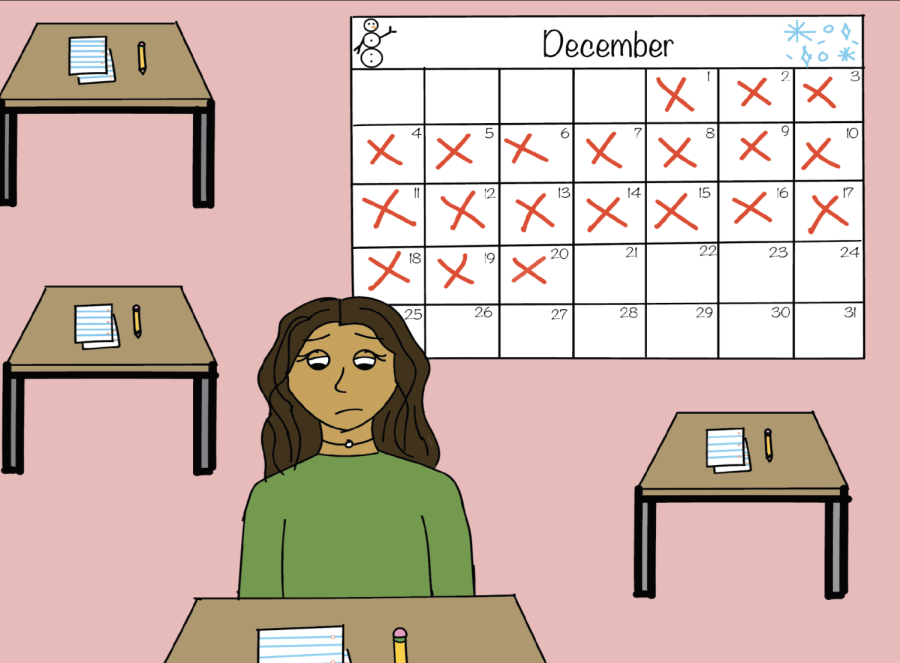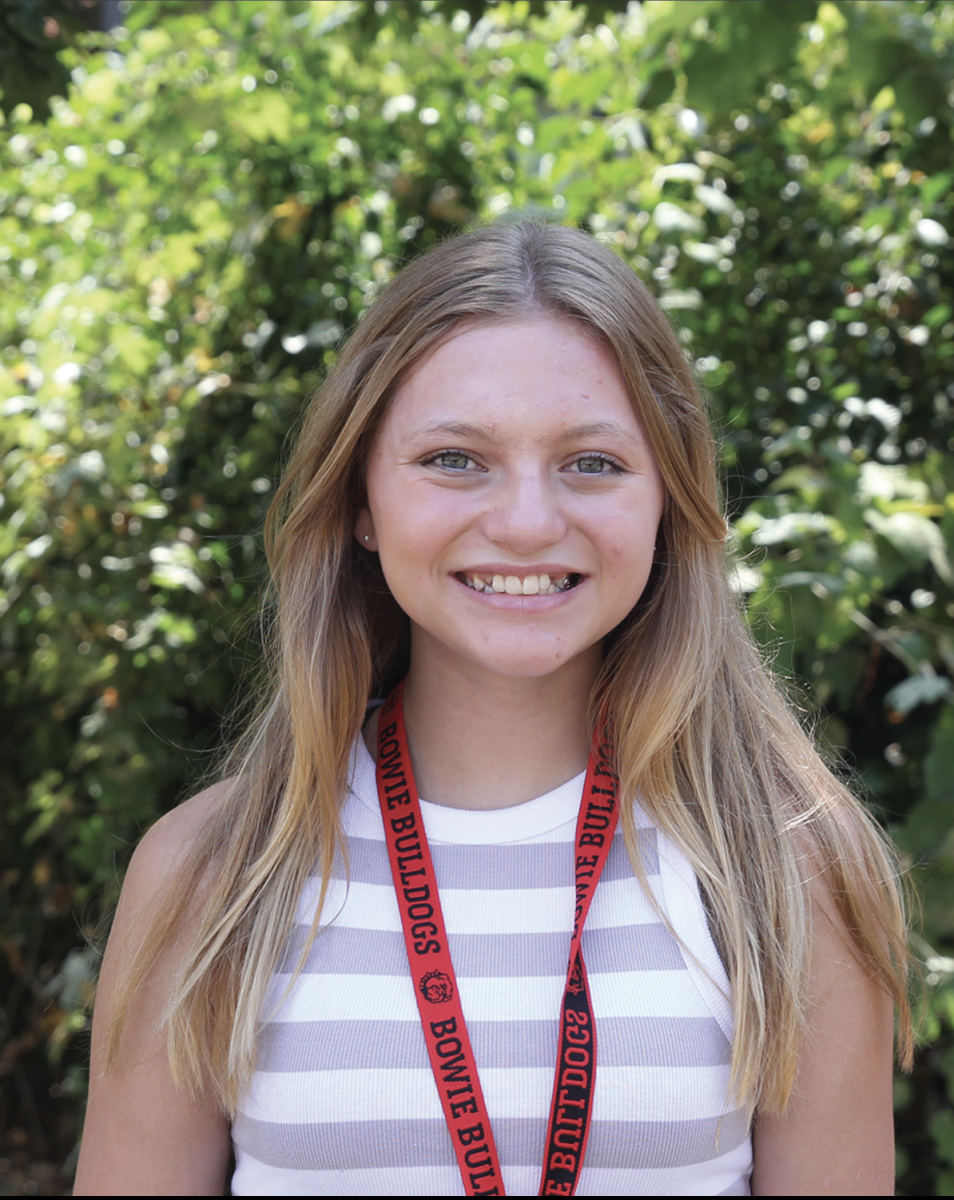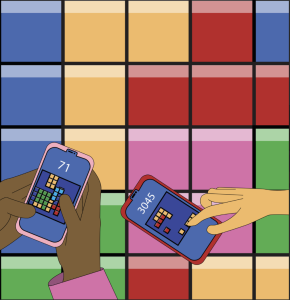The winter break schedule needs adjustments
While this year’s break did allow for time to decompress after the end-of-year rush, and ease calmly into the New Year, students were impacted by having less time to spend participating in traditions with family.
February 28, 2023
Waking up late, family gatherings, a much deserved pause from the pressures of piling homework and looming deadlines, students can look forward to all of these activities when winter break arrives. However, last semester students had to wait a few extra days to enjoy this cozy, alarm-less luxury.
Winter break was pushed back for the 2022-23 school year to begin on December 22, and end on January 10. Structuring the break this way meant it began later in December than usual and ended farther into January. This change was made by the district for the 2022-23 school year.
I enjoyed this extra time off in January; however, I believe that more of a balance needs to be struck between time off in January and in December. It’s important for students to be granted some down time with their family at the end of the year as well.
While this year’s break did allow for time to decompress after the end-of-year rush, and ease calmly into the New Year, students were impacted by having less time to spend participating in traditions with family.
Winter break was two weeks and five days long, beginning on December 22. Even though the last four days of the semester were half days due to finals, it’s likely that many students spent the afternoon hours studying for their exams the following days. This meant that while students could have been relaxing or spending quality time with their families, they continued to bear the ever-present burden of stress.
This decision also impacted those who celebrate winter holidays such as Hanukkah or Christmas creating a swift transition period between school and holiday customs. For example, there were merely three days off before Christmas for students to participate in festive activities, and Hanukkah went on for two nights while students continued their academic responsibilities.
Additionally, knowing about the extracurriculars and school activities my peers participate in, I think it’s fair to assume that the busy life of a high school student yields barely enough time for students to take part in winter rituals with their families.
In our household we celebrate Christmas, and I remember hurriedly decorating our tree on December 20, and baking traditional recipes in a rush attempting to get to bed at a decent time before my next final. Even though these may seem like small sacrifices, they all add up during a time that already feels like a sprint to the finish. Therefore, I think it is very important for students to be able to slow down, and be present with their families.
All of that being said, I am aware that some students enjoyed having so much time off in January. I understand this point of view, especially given holidays in January such as the New Year should be a time to slow down and breathe as well. Also, the longer the break extends into January, the more students are able to ease back into the school year.
For this reason, I don’t think it would be a good solution to drastically shift the schedule of Winter break. However, I do think that pushing the first day back to December 19 or 20 (depending on the calendar year) and moving the end of the break accordingly would be a good decision. This would please both those who enjoyed the extra time in January, and those who felt overwhelmed by an abrupt transition in December.
Pushing this date a few days earlier would allow for students to spend more time gathering with relatives and taking time to slow down. It could also allow for a more stress-free transition into the holidays, and give teachers the opportunity to be present with their families, taking much needed time off at a more timely date.
In the end, winter break is a time for families to spend calmly and reflect back on the year. It’s important for both students and teachers to feel like they have this time to live in the moment and participate in making special memories without the overhanging shadow of stress or grades in their minds.
Therefore, winter break should begin earlier in December to allow students and teachers the ability to participate in traditions, or surround themselves with family, no rush, making the most of every moment.










